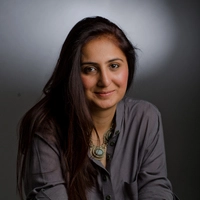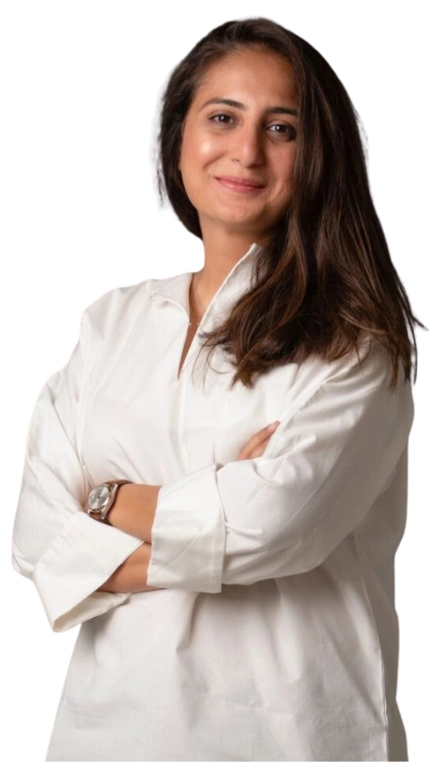Marvi Mazhar’s Vision for Gender-Equitable Urban Planning
Marvi Mazhar, a renowned architect from Karachi, has spent over two decades shaping Pakistan’s architectural and heritage landscape. Known as a “Spatial Advocate” and “Social Urban Thinker,” she is celebrated for preserving cultural heritage while addressing the relationship between architecture, urban spaces, and the environment.
A graduate of the Indus Valley School of Art and Architecture in 2009, Marvi’s career took a unique path under the mentorship of Yasmin Lari, which deepened her understanding of urbanity and heritage. Her hands-on work in rural and urban projects sparked her
passion for spatial justice.
Further studies in Italy broadened her expertise and grounded her vision for sustainable, culturally-rooted urban development. Today, Marvi is recognized for her significant projects, reflecting her commitment to social advocacy through architecture. She focuses on how architecture can drive cultural preservation, urban regeneration, and environmental sustainability, key issues that continue to shape her innovative approach to design.
Bridging Gender Divides via Thoughtful Urban Design
Marvi Mazhar’s architectural journey is deeply shaped by her experiences as a woman navigating traditionally male-dominated environments. She advocates for the transformative role women can play in urban planning and city management, emphasizing their unique ability to create safer, more sustainable, and community-driven spaces.
In her early career, the railway station conservation project in Karachi not only marked her professional entry but also opened her eyes to the gender dynamics at play in the field.

Bridging Gender Divides via Thoughtful Urban Design
One day, a female staff at the station approached her, frustrated by the lack of a women’s bathroom—a simple but glaring omission in the infrastructure.This project, which Marvi considers a game changer in her career, became more than just a restoration effort; it became a lens through which she observed the gender disparities in public spaces. This seemingly small detail opened her eyes to the broader issue of how women navigate public spaces and the barriers they face daily.
Public Transportation Gaps
Marvi’s reflections from her work on the “Pakistan Chowk Community Center” in Karachi reveal significant gender inequality in urban planning, particularly in the lack of accessible public transportation for women and the elderly. She observed that these challenges reflect broader issues within the city’s infrastructure. While the introduction of the People’s Bus was a positive step, Marvi stressed that the absence of proper bus stops still highlights the neglect of inclusive planning. The Pakistan Chowk rehabilitation shows how thoughtful design can create safer, more welcoming spaces for women, allowing them to reclaim and engage with public spaces confidently.
When women feel safe, they engage more actively with their surroundings, fostering a deeper sense of community
Re-imagining Urban Living
Marvi’s work advocates for a more accessible, equitable, and empowering urban landscape for all genders. She asserts that women should ne given leadership in city management, urban environments for better maintained and more sustainable. Drawing from her experience with the Pakistan Chowk project, Marvi highlights how women took ownership of the space, contributing to its upkeep.
Marvi also raises concerns about the modern trend of high-rise buildings dominating cityscapes and questions their humanistic value. She contrasts them with the architecture of the 1950s—ground-plus-three buildings featuring open spaces, long corridors, and communal areas.
According to her, today’s high-rises tend to feel isolating, lacking the sense of community that older, lower-rise buildings once fostered. She points to examples from within the region where older apartment complexes still function as tight-knit communities. In these spaces, neighbours know each other, and there is a shared sense of responsibility and connection. Traditional events, such as “Tehvar”, are still celebrated, and these communal interactions are possible because of the human-scale design of these structures.
She maintains that when buildings exceed a certain scale, they create a disconnect from the human experience, eroding the relationships that once thrived in smaller, more intimate settings. Despite offering luxurious amenities in modern high-rise, like swimming pools and scenic views, these buildings do little to foster meaningful social interaction. Such accommodation is more like “matchboxes,” as she terms it, there is no sense of belonging or neighborhood.
Marvi stresses that developers and architects must consider the needs of all genders, children, and staff when designing public spaces. A building’s design must be evaluated not only for its aesthetic or functional value but also for how it serves its inhabitants. For example, whether the corridors of high-rises are safe for women and staff, whether there are adequate bus stops nearby, and whether the footpaths and streets damaged during construction are repaired.
Climate Change and Sustainable Building Practices
Talking about policies, she believes developers to give back to the community through green spaces, pedestrian-friendly streets, and ethical construction practices. As construction industry is a major contributor to environmental degradation, the overuse of concrete in building projects, exacerbates climate issues. Her work on climate-friendly building practices, highlights her commitment to finding sustainable solutions in architecture. She argues that Pakistan must invest in research and development to create low-carbon building materials and design practices.
Indigenous Knowledge In Urban Planning
One of Marvi’s most thought-provoking observations relates to the disconnect between human and non-human relationships in urban spaces. She reflects on her film “Milaap”, which explores the love people have for their land, soil, and environment. Through this work, she emphasizes the importance of indigenous knowledge in urban planning and the need to honor the natural environment in architectural design.
The Power of Collaboration
Marvi’s insights challenge the current urban landscape, highlighting the gender inequalities in public spaces, the isolation of modern high-rise living, and the urgent need for sustainable planning. She advocates for different departments of the government and urban planning to form synergy cities that prioritize human connection and inclusivity, urging architects and developers to create more equitable, sustainable environments that better serve all members of society.








